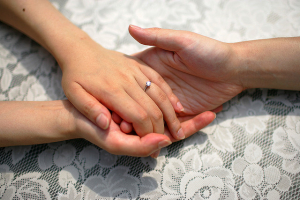
Ghosting in Relationships
“I was seeing someone I met online. We went on a few dates and things seemed to be going well. All of a sudden no

“I was seeing someone I met online. We went on a few dates and things seemed to be going well. All of a sudden no

Sexual difficulties are about as common as eating or sleeping disorders. Research shows that sexual dysfunction affects about 43% of women and about 31% of

Often, when we feel overwhelmed in our day to day lives, we wish to share our feelings, thoughts and perspectives with people who are part of our lives. We share these for several reasons – to feel validated, to find an emotional release, to ‘sort things out’ as we speak, and so on. Underlying many of these reasons is the need to be understood. However, sometimes it feels like they have misunderstood us, or have not completely understood. The feeling of being constantly misunderstood by people close to us can deeply impact us.

Conventional knowledge tells us that pornography is bad, damaging our psyches and ruining our relationships. However,
watching porn does not necessarily have to ruin your sex life; it can also turn your sex life around, in an adventurous way. Porn can at times, serve to stimulate desire and serve as a release for physical and emotional needs.

You are in a whirlwind of emotions, following the discovery of your spouse’s affair. Your perceptions and thoughts could be hugely affected and can greatly influence your decisions. This article has pointers from our team that can help you undertake this journey from the initial discovery to eventual decisions in as healthy a way as possible.

As time goes by, the dynamics of marriage as an institution are changing. The demands on people from within and outside a marital relationship are higher. Sometimes, amidst these numerous and stressful demands, people are not able to feel fulfilled emotionally and might seek relief and solace outside their marriage. In this article, as a team of psychologists, we discuss and enumerate the main psychological reasons for extramarital affairs.

Where there are relationships, there are bound to be rough patches. However, sometimes, relationships slip into a rut or a negative pattern where one partner is continuously angry, blaming and hurtful…or is suspicious, mistrustful and doubting. Sometimes, unfortunately, both partners have some such behaviors that adversely affect the relationship. Patterns such as these, when severe and repetitive constitute ‘Emotional Abuse’ or ‘Psychological Abuse’.

Some of you in your relationships may be in a situation where one partner wants or wishes for sex much lesser than the other partner. We’ve written an article that extensively describes low sexual desire – what contributes to it and what one can do about it.

Marriages today are under duress and we all know that. The statement has been true for the past decade or so for a number of countries and India follows suit. The number of couples I see for therapy have at least quadrupled in the last decade.

If you find yourself getting angry and irritated easily and are ready to ‘give it back’ most of the time, you are also probably quite bottled up inside. Few people seem to understand you and most brand you as an ‘angry teen’. You may have tried ‘controlling your anger’ and ‘being less angry’ but may not have succeeded to your satisfaction (and those of others). Often, what we do to manage aggression is try “not to get angry” even when we are actually angered. Think about it. It’s like mom is repeatedly saying something to you, you’re fuming within but try to “be calm” and mask your anger. No wonder then that you end up snapping or yelling at her despite not wanting to. What we actually doing here is ‘controlling’ or attempting to suppress our anger. It’s like trying to shut an overstuffed suitcase. Suppression is never healthy, it only breeds sadness, frustration and makes us feel that the people around us are unfair.

We specialize in combining psychotherapy with deep wellness practices like mindfulness and meditation and creating a customized mental health plan for individuals and organisations.
We specialize in combining psychotherapy with deep wellness practices like mindfulness and meditation and creating a customized mental health plan for individuals and organisations.

A young woman from another country moved with her family to live for one year in a town near the monastery. When, in the course of the year she discovered the monastery, she would periodically visit to have discussions with the Abbess. The Abbess introduced her to meditation, which became very meaningful for the young woman.
When the family’s year-long stay was drawing to an end, the young woman asked the Abbess, “In my country there is no Buddhism and no one has even heard about meditation. How can I continue to learn and deepen the practice you have started me on?”
The Abbess said, “When you return home ask far and wide for who, among the wise people, is recognized as having the greatest ability to listen. Ask that person to instruct you in the art of listening. What you learn about listening from such a person will teach you how to further your meditation practice.
― Gil Fronsdal, A Monastery Within: Tales from the Buddhist Path